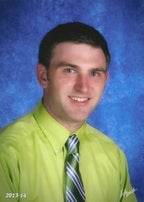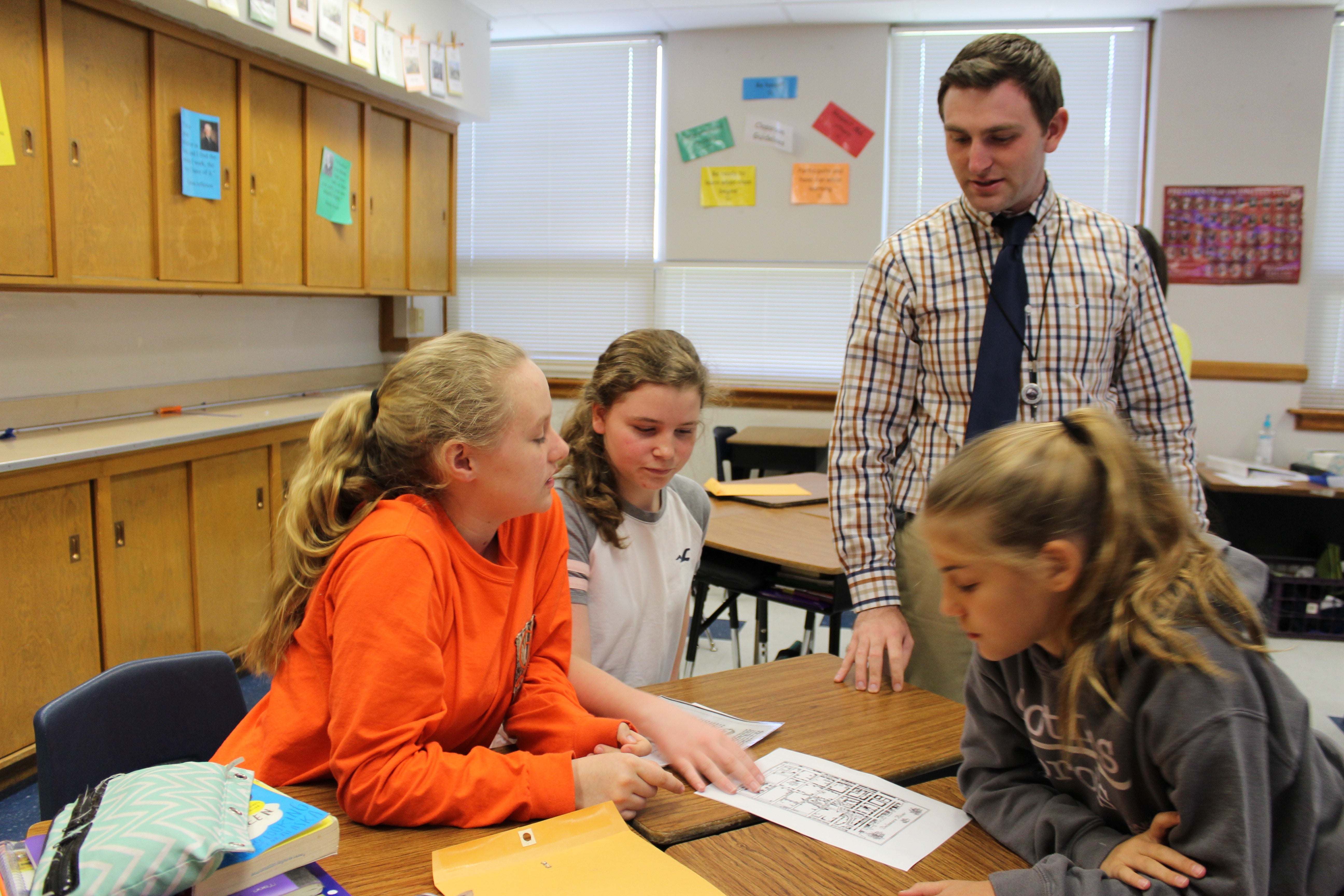Get to Know the 2017 History Teachers of the Year: Luke Roadcap, Virginia
Posted by Anna Khomina on Thursday, 09/21/2017
This year, the Gilder Lehrman Institute recognized 52 State History Teachers of the Year for their tireless and innovative efforts to make history come alive for their students.
But who are they, really? We asked these talented teachers to answer a few questions about themselves and to reflect on the challenges and joys of teaching. We will feature a state winner every Tuesday and Thursday, so keep checking back to learn more about these outstanding educators!
This week, meet Luke Roadcap:
 Luke Roadcap, Elkton Middle School
Luke Roadcap, Elkton Middle School
2017 Virginia History Teacher of the Year
Do you have a favorite/funny memory from teaching?
There are way too many wonderful memories to just select one. One memory that stands out is, after walking into the gym for a school assembly, it hit me that, being the only 6th grade social studies teacher, I knew every single student in the gym—all of them had been in my classroom. A funny memory comes from when I was teaching Prohibition. We pretended the room was a speakeasy and there needed to be a secret knock to enter the classroom. When the principal walked in, a student exclaimed: "Look out! It’s the cops!"
A third favorite memory is when I teamed up with an English teacher to lead a joint research project on Japanese internment camps and then allowed students to present their projects in a "history fair" type setting. Another memorable moment, or rather series of moments, is when a particular 8th grade basketball player would seek me out to tie his necktie on game days. Most memories focus on the incredible learning that took place and the relationships that were developed because our school is not just a school, it’s a community.
What is the last great history book you read?
This is an incredibly tricky question because there are so many great history books, each one having its own reasons. In The Wilsonian Moment: Self-Determination and the International Origins of Anticolonial Nationalism, Erez Manela argues that even though Woodrow Wilson was unable to fulfill his promise of self-determination, his message spread throughout oppressed nations and ignited the spark that led to the decolonization movement. Another great book is Edward Baptist’s The Half Has Never Been Told: Slavery and the Making of American Capitalism. Baptist provides readers with a more nuanced view of slavery, particularly regarding its impact on the industrialized sections of the United States. Challenging the notion that the Monroe Doctrine placed the United States in isolation, Jay Sexton, in The Monroe Doctrine: Empire and Nation in the Nineteenth Century, illustrates the imperialist paradox of the Doctrine.
What is your favorite historical site or museum?
It is too difficult to settle on only one historical site or museum, so I must go with Colonial Williamsburg and the Freedom Trail in Boston. Colonial Williamsburg allows visitors the opportunity to step back into time and, in many cases, truly interact with the history of our country’s founding. The atmosphere at Colonial Williamsburg allows guests to gain a genuine historical experience. However, on the other hand, the Freedom Trail in Boston is quite a unique experience as well. Although the trail focuses mainly on the beginnings of the American Revolution, there are a few places along the way that commemorate other aspects of our nation’s history, including William Lloyd Garrison’s first abolitionist speech at Park Street Church. What I find most unique about the Freedom Trail is the juxtaposition of old and new. The Old South Meeting House where patriots gathered prior to the Boston Tea Party is flanked by high-rise buildings.
 What advice would you give to young people, in high school or college, who may be considering a career in education but are unsure?
What advice would you give to young people, in high school or college, who may be considering a career in education but are unsure?
The advice I would give students who are unsure if they would like to enter the teaching profession, is that it is okay to be unsure. There are so many different directions that one can take, so it is only natural to be unsure of choices that will affect your future. The beauty of teacher education programs is in the field experiences, where you will be able to practice your role as a teacher. Those opportunites can help guide your decision.
If you could travel back in time and meet any historical figure, who would it be and why?
Woodrow Wilson! Most of my undergraduate- and graduate-level work focused on his actions regarding the League of Nations. I find Wilson to be a fascinating character in history—reviled by some, but adored by others. His perseverance to create and then join the League of Nations ignited the passion in him to fight for what he thought was right. Furthermore, Woodrow Wilson was a fellow educator! He held the intellectual achievements of education in such high regard that he lobbied for the graduate school at Princeton University to be built in the center of campus, even though in the end, it was not.
Who is your favorite historian?
John Milton Cooper Jr. is my favorite historian. Like me, the focus of his research is on Woodrow Wilson, so much of what he has done influenced my own work.
Do you have a favorite historical topic or era?
While I enjoy practically all areas related to United States history, perhaps my favorite is diplomatic history, specifically the events surrounding the Paris Peace Conference in 1919 and the development of the Marshall Plan. More than just looking at America’s position in the international community and to what degree other countries wished input (or interference) from the United States, these topics lead historians to a deeper question: What did Americans perceive their role to be in the world?
Do your students have a favorite historical topic or era?
It seems that most students typically enjoy learning about the different wars the United States fought. Perhaps this is because they equate wars with action and adventure from watching movies, or because they have prior knowledge of the events. Quite often, students ask about Vietnam, and that question seems to stem from their grandfather, or another loved one’s, participation in the conflict.